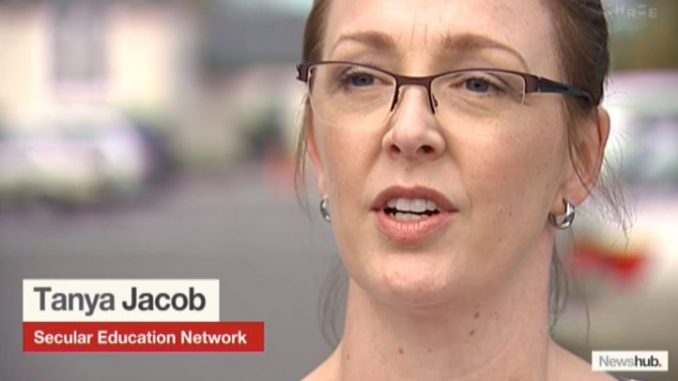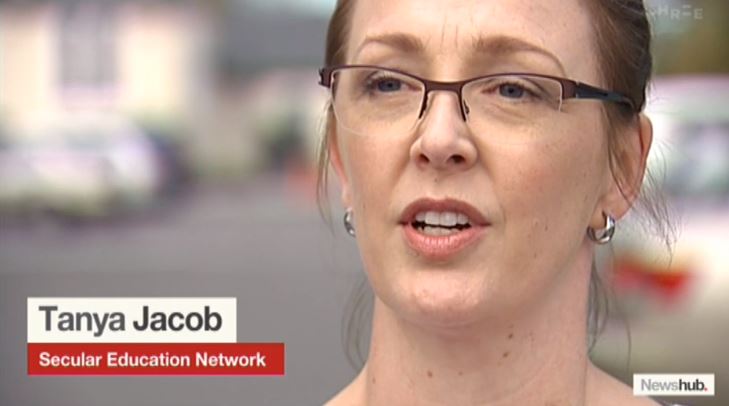

Secular Education Network campaigners David Hines and Tanya Jacob are over the moon about a High Court decision today (18 July) to let them take a fast-track to their day in court.
<< Donate to their legal fund here >>
Hines borrows from Martin Luther King and says:
“I have a dream that my great grand-children will one day sit in schools where they will not be judged by their religion or lack of religion, but by the content of their character.”
Along with about 130 other civil rights applicants, their case has been stalled for 21 months in the Human Rights Review Tribunal, because of a major staffing shortage at the Tribunal.
Hines and Jacob used a little-known provision of the Human Rights Act (section 122A(2)(a)), to ask the Tribunal to refer their case to the High Court. The move was supported by the Human Rights Commission, and no objection was raised by the other parties to the case: the Attorney-General and the Churches Education Commission.
In his decision, Justice Peter Churchman accepts that there have been major delays at the Tribunal and that an unacceptable backlog has occurred. However, he is concerned that if the delays were held to justify removal to the High Court, there may well be a flood of similar applications.
He says it must remain the exception rather than the rule. “However, by a fine margin, I am satisfied that this is such an appropriate case.” The requirement of s 122A(2)(a) is met on the basis that an important question of law arises in these proceedings.”
Hines and Jacob have filed evidence from 25 witnesses including parents of school children, teachers, students, religious experts and representatives of four religions complaining of the harm these laws are creating including segregation of classes, bullying of children and their parents, and a compromise of the right to a free, secular education.
Hines says it will be a huge relief to their witnesses and thousands of supporters to have a day to have their complaints reviewed. He expects this could happen late this year or early 2019.
Many of the children whose experiences of mistreatment were reported to the Secular Education Network as far back as 2012 have now left the primary schools they have complained about, but dozens of new families are joining the network, and will eventually benefit if the law gets amended.
The statement of claim
The plaintiffs are seeking a ruling that several clauses in the Education Acts 1964 and 1989 are inconsistent with the Bill of Rights Act 1990. Among them:
- Sections 78-79 of Education Act 1964, which permits secular schools to close during the school day to allow Christian volunteers to lead religious instruction classes, while other children have to be segregated into other classrooms their parents complain. In secondary state schools, the programme is not required to be secular at all.
- Section 7 of EA 1989 gives state schools the right to reflect the religious preferences of the school community, and the Ministry of Education has no power to monitor this for possible breaches of the right to freedom from religious or ethical discrimination.
Read the full statement of claim (12 page PDF – 114kb)
Read the full judge’s decision allowing the case to proceed (4 page PDF – 207kb)
What the government is doing about the backlog
The Tribunal complained to the National Government in February 2017 about the backlog.
The Labour government this year accepted that the backlog of cases in the Human Rights Review Tribunal was unacceptable and Associate Minister of Justice Aupito William Sio has begun reviewing the problem, but when we asked him in February 2018 when the backlog would be cleared, he replied that was unable to give an estimate.


Excellent news!